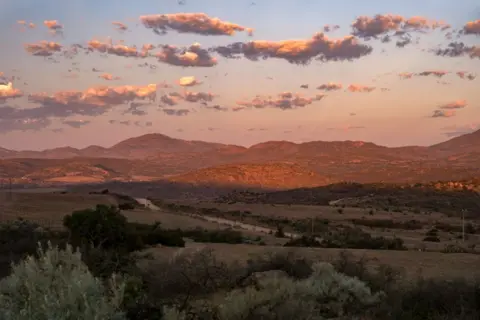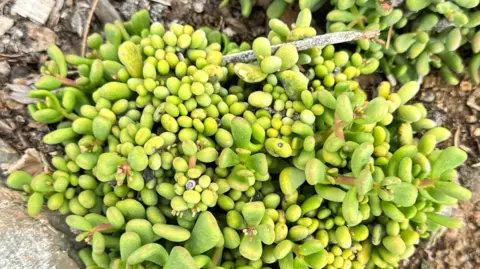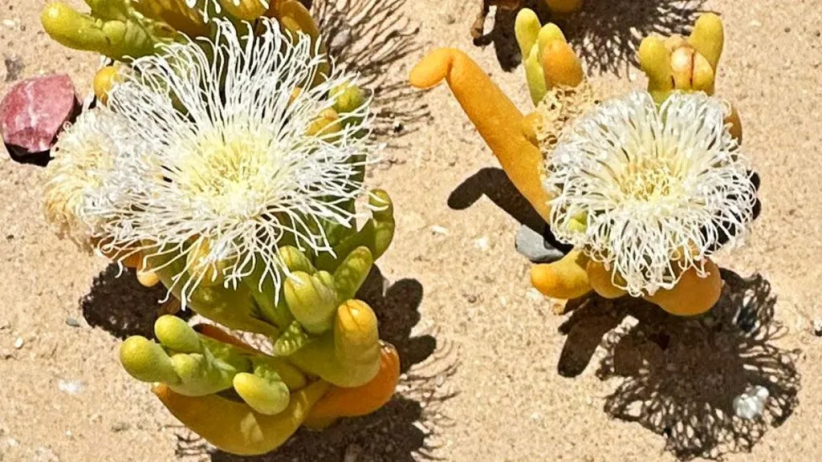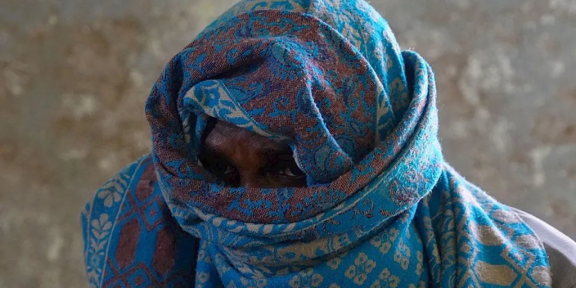A remote biodiversity hotspot in South Africa has become a hub for illegal plant trade, driven by organized crime. “They’ve stolen our land, plants, and heritage,” a livestock farmer angrily tells the BBC, highlighting the social and ecological crisis caused by poaching.
Succulents, known for storing water and thriving in arid climates, are the main targets. Many of these species are found only in the Succulent Karoo desert, spanning South Africa and Namibia.
Succulent species vary in size, shape, and color. Some resemble small, multicolored buttons, while others look like cacti, sprouting colorful flowers. Despite cultivation in nurseries, global demand fuels wild poaching, with plants smuggled and sold online to buyers in the US, Europe, and East Asia.
In Kamieskroon, a small town in South Africa’s Namaqualand region, rolling hills have become a poacher’s haven. Some species, highly localized, can be wiped out by small-scale poaching. “In South Africa, seven species have already been wiped out, and more will go extinct soon,” says Pieter van Wyk, a nursery curator at the /Ai /Ais-Richtersveld Transfrontier Park.
While exact figures are hard to obtain, the NGO Traffic reports 1.6 million illegally harvested succulents seized by South African law enforcement between 2019 and 2024. This only represents detected contraband; the true figure is likely much higher.
The South African government is aware of the problem and unveiled a 2022 strategy to combat poaching, including community programs about environmental protection. Namaqualand boasts an estimated 3,500 succulent species.

According to van Wyk and conservationists, plant poaching has surged since the COVID-19 lockdown in 2020. International traders unable to travel turned to locals to collect succulents and ship them abroad. This coincided with an increase in global demand.
“People had more time to find hobbies, and plants connected them to the outside world,” van Wyk says. Organized crime syndicates capitalized on this, hiring plant poachers and marketing wild plants online. “The syndicates made it viral, saying, ‘We have this super-strange plant from Africa,’ and the public went crazy, buying poached species,” van Wyk adds.
The rise in organized crime affects local communities. “This is a low-income area; people exploit income opportunities,” explains Malinda Gardiner from Conservation South Africa. The livestock farmer adds, “When young men go up the mountain, we know they’re poachers.” Poachers use screwdrivers to uproot succulents and carry them in backpacks.

A few days after poaching, binge drinking and illegal activities spike. “With money comes more drugs and alcohol, children are neglected,” Gardiner adds, fearing long-term effects. “Small communities need each other, but this brings distrust and splits,” she says. Van Wyk’s assessment is stark: “People are abused and enslaved by syndicates and buyers.”
Efforts are underway to raise buyer awareness about plant origins. China, a major demand source, launched the Clean Internet for Conophytum campaign in March 2023, seeing an 80% reduction in online adverts for conophytum, a succulent type. Buyers now ask about plant origins. “Awareness is key. Once people know, they want to act responsibly,” says Linda Wong, deputy secretary-general of the China Biodiversity Conservation and Green Development Foundation.
Conservationists advise customers worldwide to ask about plant origins and avoid buying wild plants. Traffic and the UK’s Kew Gardens announced a partnership with eBay to prevent wild succulent sales.
In South Africa, van Wyk advocates for promoting legally grown succulents to reduce poaching demand. “We need to benefit from this resource like other countries,” he tells the BBC.
Van Wyk runs a nursery at the /Ai /Ais-Richtersveld Transfrontier Park, caring for confiscated plants, over 200,000 so far. “It’s stressful seeing plants disappear, but studying them brings joy and distraction from the world’s problems,” van Wyk says.






























